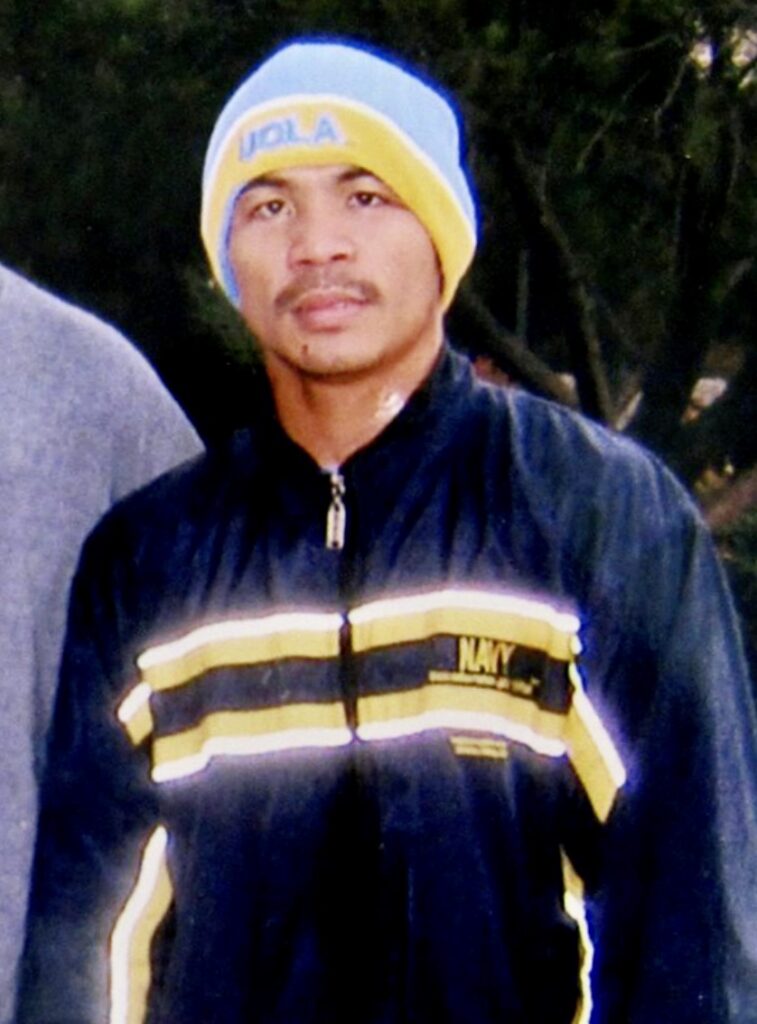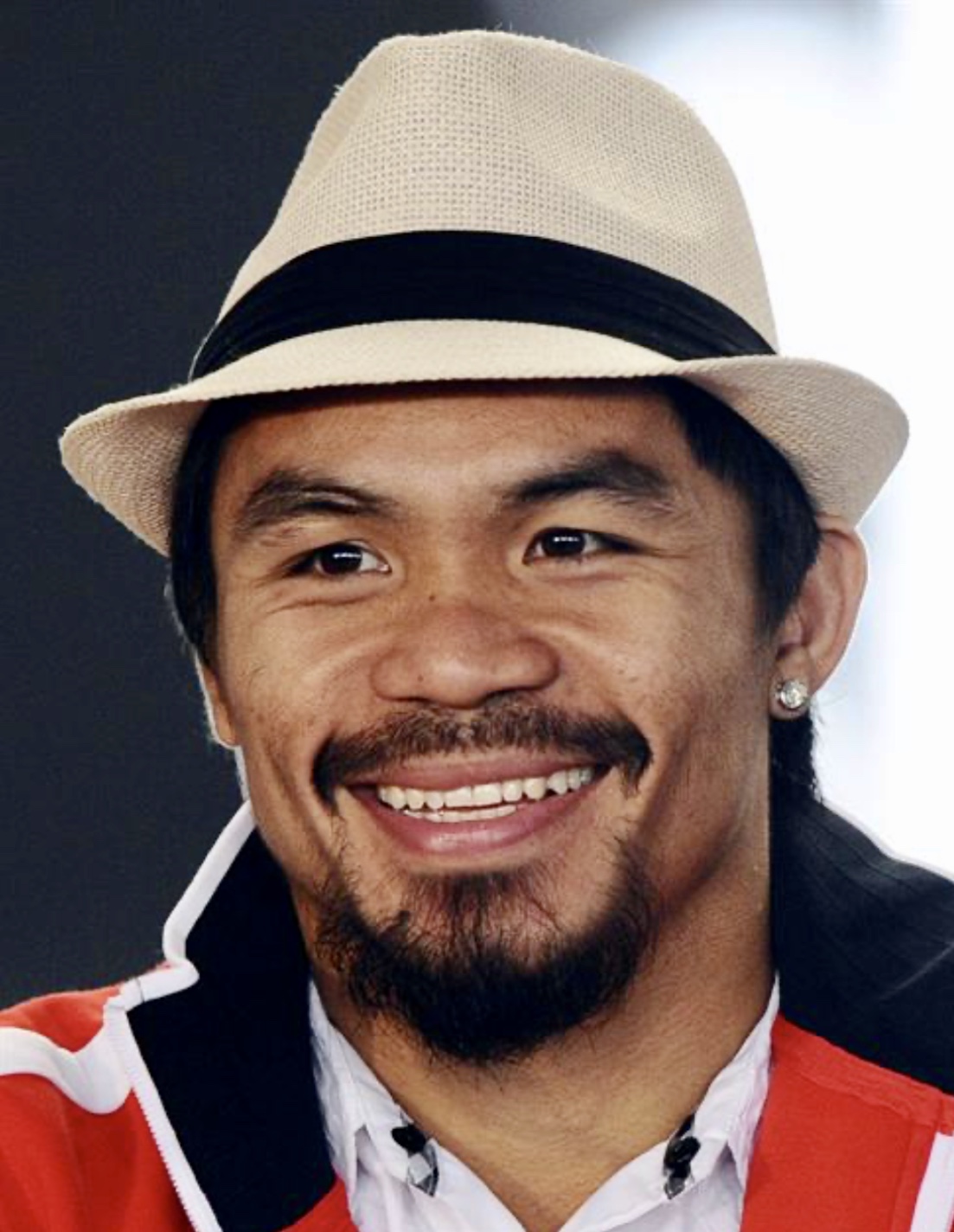Text by Henrylito D. Tacio
Photos from Wikipedia
“We were dirt poor. I had to work since the age of five, to help my mother feed my three siblings and me. Many days, I was lucky to have one full meal. On days when we had no food, I would drink lots of water just to fill my stomach. But my mind and spirit were never hungry.”
The statement came from the mouth of Senator Emmanuel “Manny” D. Pacquiao, one of the world’s famous boxers. He said those words before the Oxford Union in Great Britain a couple of years ago.
Pacquiao has joined a group of famous people who had been invited to speak at the Oxford Union. To name a few of them: American presidents Ronald Reagan, Richard Nixon, and Jimmy Carter; British statesman Sir Winston Churchill; Nobel peace prize laureates the Dalai Lama and Mother Teresa; and British singer Elton John.
“The poverty of our century is unlike that of any other,” says English poet and novelist John Berger. “It is not, as poverty was before, the result of natural scarcity, but of a set of priorities imposed upon the rest of the world by the rich. Consequently, the modern poor are not pitied, but written off as trash. The twentieth-century consumer economy has produced the first culture for which a beggar is a reminder of nothing.”
The National Statistical Coordination Board describes the poor as “those whose incomes fall below the threshold determined by the government, or those who cannot afford to provide in a sustained manner for their minimum basic needs for food, health, education, housing and other social amenities in life.”
But poverty does not happen only in the Philippines but also in other parts of the world. Currently, more than 8 million people around the world die each year because they are too poor to stay alive. The World Bank estimates that 1.3 billion people live in extreme poverty, and Asia leads in numbers.

Extreme poverty, defined by the World Bank as getting by on an income of less than US$1 a day, means that households cannot meet basic survival needs. They are chronically hungry, unable to get health care, lack safe drinking water and sanitation, cannot afford education for their children, and perhaps lack rudimentary shelter and basic articles of clothing, like shoes.
“There are people in the world so hungry, that God cannot appear to them except in the form of bread,” observed Mahatma Gandhi, the leader of the Indian independence movement against British rule.
Most parents say that education is one of the ways to beat poverty. But not always, as Pacquiao has proven it. “It is a matter of record that I only had traditional formal schooling until Secondary School,” he said in his speech. “It was only recently that I reached University level through the alternative education program.”
In February 2007, Pacquaio took and passed a high school equivalency exam and was awarded with a high school diploma by the Department of Education.
Like most Filipinos, Pacquiao learned about life the hard way. Born in Kibawe, Bukidnon and raised in General Santos City, he is the fourth of six siblings. His parents separated when he was in sixth grade after his father had an affair.
According to Wikipedia, he completed his elementary education at Saavedra Saway Elementary School in General Santos City. He dropped out of high school due to extreme poverty.
“I read anything I could get hands-on. I even read the newspaper that my lunch or dinner came wrapped in. I read signs everywhere, even on moving vehicles. I learned measurements and weights by constantly reading the rates and tariffs at the warehouses where I worked as a stevedore, a docker in your parlance.
“At night, when I could not sleep because of the cold, I would read the labels on the carton boxes that served as my bed on the street pavement. The movements of the clouds, the tint of the horizon, and the clarity of the stars taught me when morning was about to come.”
But what Pacquiao had in those days was perseverance, which he still has today. “For me, the morning did come. Warm, bright, and simply amazing – a lesson in what can be achieved if you have determination. If you ignore the odds against you, and as you are taught here at this magnificent institution, never, ever quit.
“Think of David and Goliath,” he continued. “Look at me. I am not very big and I never had five smooth stones to throw at any obstacles, but determination is a power tool. I won a lot of fights.”
In his autobiography, it was while watching the fight between Mike Tyson and James “Buster” Douglas in 1990 that urged him to become a boxer. His early interest in combat sports was also inspired by Chinese martial artist Bruce Lee and American boxer Muhammad Ali (who came to the Philippines in one of his fights against Joe Frazier).
No one can question his capability as a boxer. Boxing historian Bert Sugar ranked him as “the greatest southpaw fighter of all time.” In 2020, Pacquiao topped Ranker’s list of best boxers of the 21st century. In 2005, he was the second-highest-paid athlete in the world, according to Forbes.
He made several records hard to break. He made history as the first boxer ever to win world titles in eight weight divisions and having won twelve major world titles. He is also the first boxer to win the lineal championship in five different weight classes.
Likewise, he is the first boxer in history to win major titles in four of the original eight weight classes of boxing. He is the first boxer ever to become a four-decade world champion.
As a boxer, he viewed himself as a fighter. “I am a fighter, not just because it is my profession,” he pointed out. “I was a fighter long before I first set foot in a boxing ring. All my life, I have fought to live. Every single day in my youth, I fought for survival. Now, I do it and get paid for it. Then, I was lucky to get a piece of bread for it.”
But as a Filipino senator (who may run for the presidency in the forthcoming presidential election), many viewed him “as singularly ill-equipped.” He admitted: “I may not have financial acuity. I may not be historically fluent. I may not even be socially adept. But I am philosophically rooted in my personal adversities, which morally bind me to the general struggle of our people.”
There are more than 100 million Filipinos now, and most of them are living in poverty. “I believe, in all humility, that my life is just a snapshot, it is a glorified blow-up of what millions of Filipinos live through on a day-to-day basis – the hardships, the challenges, the back-breaking, hope-extinguishing despair.”
Pacquiao believed that his life would be an inspiration to average Filipinos “to fight, to rise above adversity, to conquer and defy, and to embrace life and all its difficulties.”
Miracles happened in the past. It is still happening now. “Miracles do happen,” he said. “Dreams do come true. Being poor does not mean one must die poor. Hard work and persistence will set you free from the shackles of poverty. But it is faith that will take you to the very top.”

